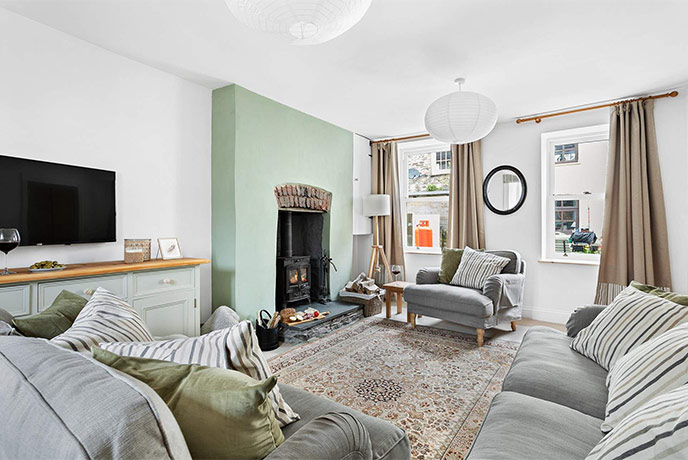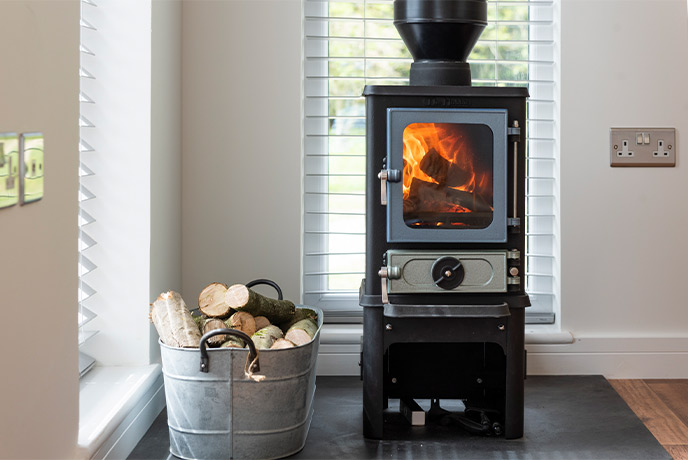New fire safety regulations for holiday homes in England and Wales
In the newsFire safety guidelines are in place across the UK to help keep properties and guests safe while holiday letting, which is why it’s so important to know and understand any changes.
**Last updated 21st November 2024**
With the government’s new regulations for fire safety in holiday homes in England and Wales (Guidance specific to Wales here), we’ve put together some key information to help make the transition easy.
Full length, written assessments, covering all aspects of fire risk, are a legal requirement for all properties. This regulation was introduced on the 1st of October 2023.
Additionally, the government has issued new guidance that applies to properties of ‘small paying guest accommodation’. This is defined as:
‘A single premises of ground floor, or ground and first floor, providing sleeping accommodation for a maximum of 10 persons, with no more than four bedrooms on the first floor…’
OR
‘Individual flats (whether within a purpose-built block of flats or a house that has been converted into flats), other than unusually large flats.’
What does the guidance say?

To help you understand these new regulations, we have pulled out and explained the main points from the new guidance for ‘small paying guest accommodation’ below:
1. It is a legal requirement to have a Fire Risk Assessment (FRA) carried out and recorded for your property. A copy of the Fire Risk Assessment should also be displayed in your property, ideally in your Cottage Information Folder. We strongly recommend that this is carried out by a professional FRA company who will be fully up to date with legislation and can demonstrate they have the competency required to consider all risks. For larger and more complex properties, it is extremely unlikely that the average property owner will have suitable and sufficient experience to be able to thoroughly evaluate the level of risk.
2. Emergency escape lighting is required in bedrooms and along the escape route – this can be provided by plug in torches, although larger properties may need full escape lighting. Borrowed light from e.g. streetlights can be taken into account.
3. Protected escape routes must have doors with a 30-minute fire protection capability, or an adaptation that offers this level of protection.
4. Linked hard-wired smoke detectors are now required in all bedrooms and living rooms as well as protected escape routes ie hallways, corridors, staircases, sitting-rooms and dining-rooms leading to the main fire exit. Larger properties or those with complex layouts may need more sophisticated detection systems.
5. All hot water and heating systems must be inspected annually, including systems powered by renewable energy eg air/ground source heat pumps.
6. Thumb turn locks are now strongly recommended on all exit doors – There would be very few instances where it would be deemed unnecessary to fit these, and they can usually be retro-fitted to most doors.
7. The EICR (fixed wiring check) is required every 5 years, and this now also applies to many small Unique hideaways/glamping properties.
8. Chimney flues should be swept annually.
9. Checks on all fire safety equipment and exit routes must be carried out at each change of occupancy/weekly and the results recorded. A checklist is available for download on the owner portal (in the Documents section), should you choose to use this as a template.
10. Candles should be prohibited, and a clear policy is required for your guests.
For larger and/or more complex properties, the document Fire Safety Risk Assessment: Sleeping Accommodation still applies and it is likely to be reviewed in 2024.
What do you need to do next to make sure you’re compliant with the new regulations?

We strongly advise your Fire Risk Assessment is carried out by a professional, rather than conducting a Fire Risk Assessment yourself as the new changes from the 1st of October are more complex and difficult to follow. By relying on a professional you can guarantee they will understand the changes and follow the government guidelines, and not put you or any guest at risk.
If your original FRA still meets the requirements of the current legislation and your property has not been changed since the original FRA was carried out, you can sign to confirm you’ve reviewed the details for another year.
How to find a Fire Risk Assessor local to your property
When it comes to finding a professional to conduct the Fire Risk Assessment at your property, the obvious place to start is search engines such as Google and looking for a ‘fire safety risk assessor.’
It is always worth checking that they’re an accredited assessor. You can use the following sites to find accredited assessors:
The Institution of Fire Engineers
The Institute of Fire Prevention Officers
If you have any questions on the changes to regulations, please don’t hesitate to contact us on owner.support@classic.co.uk.

